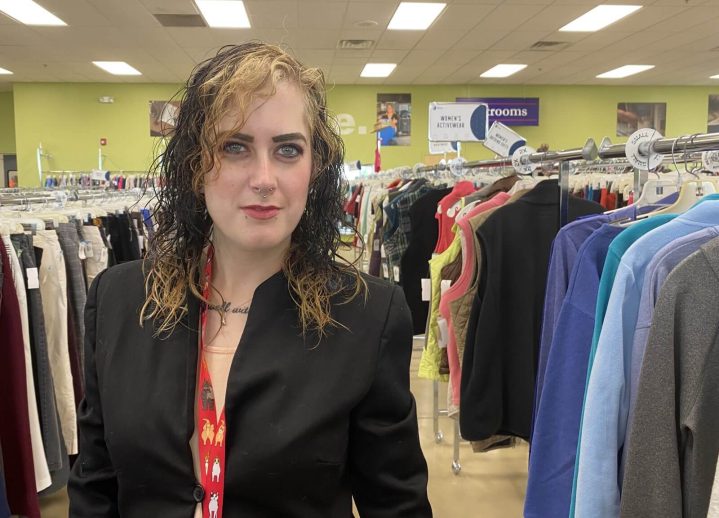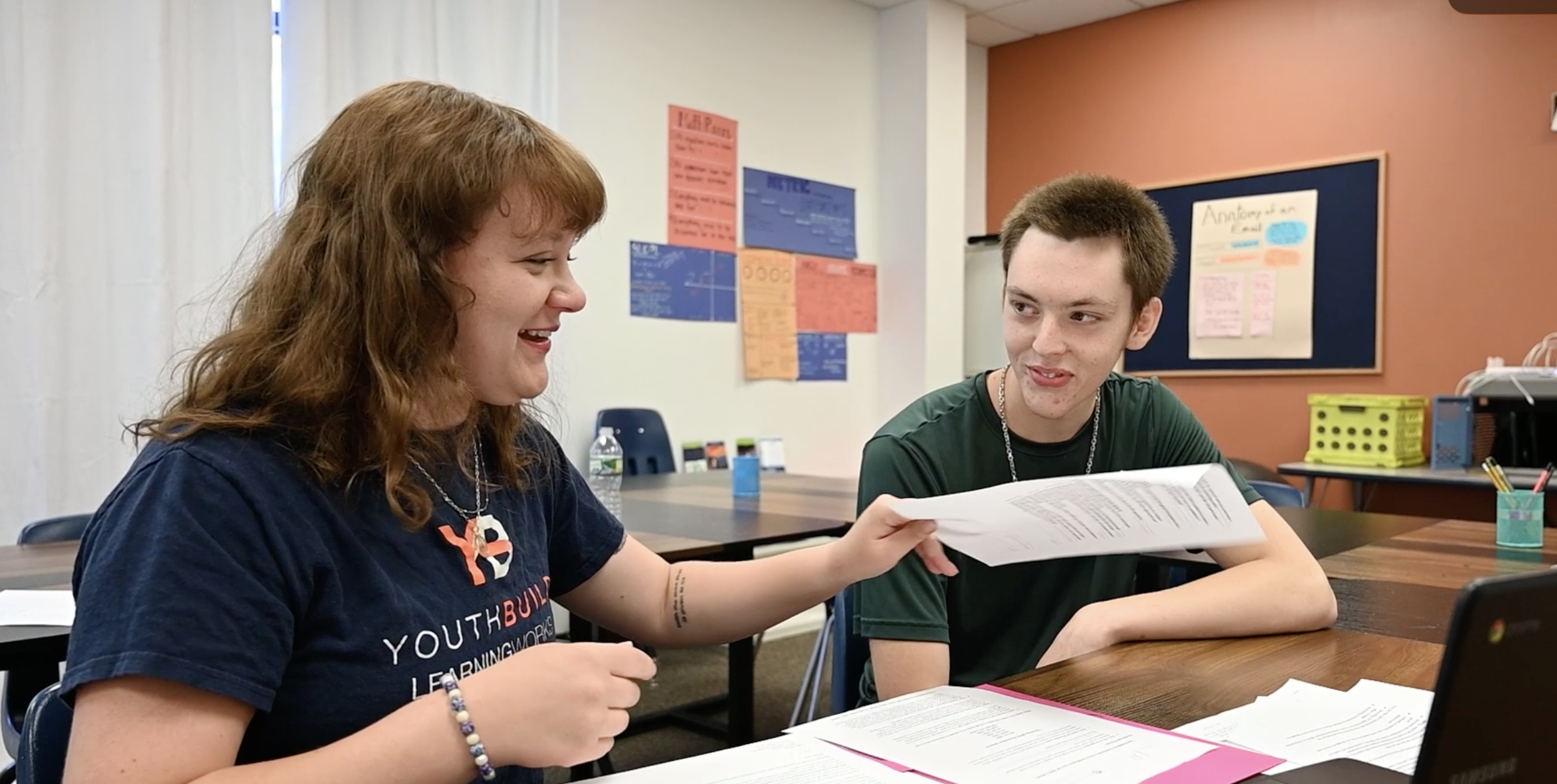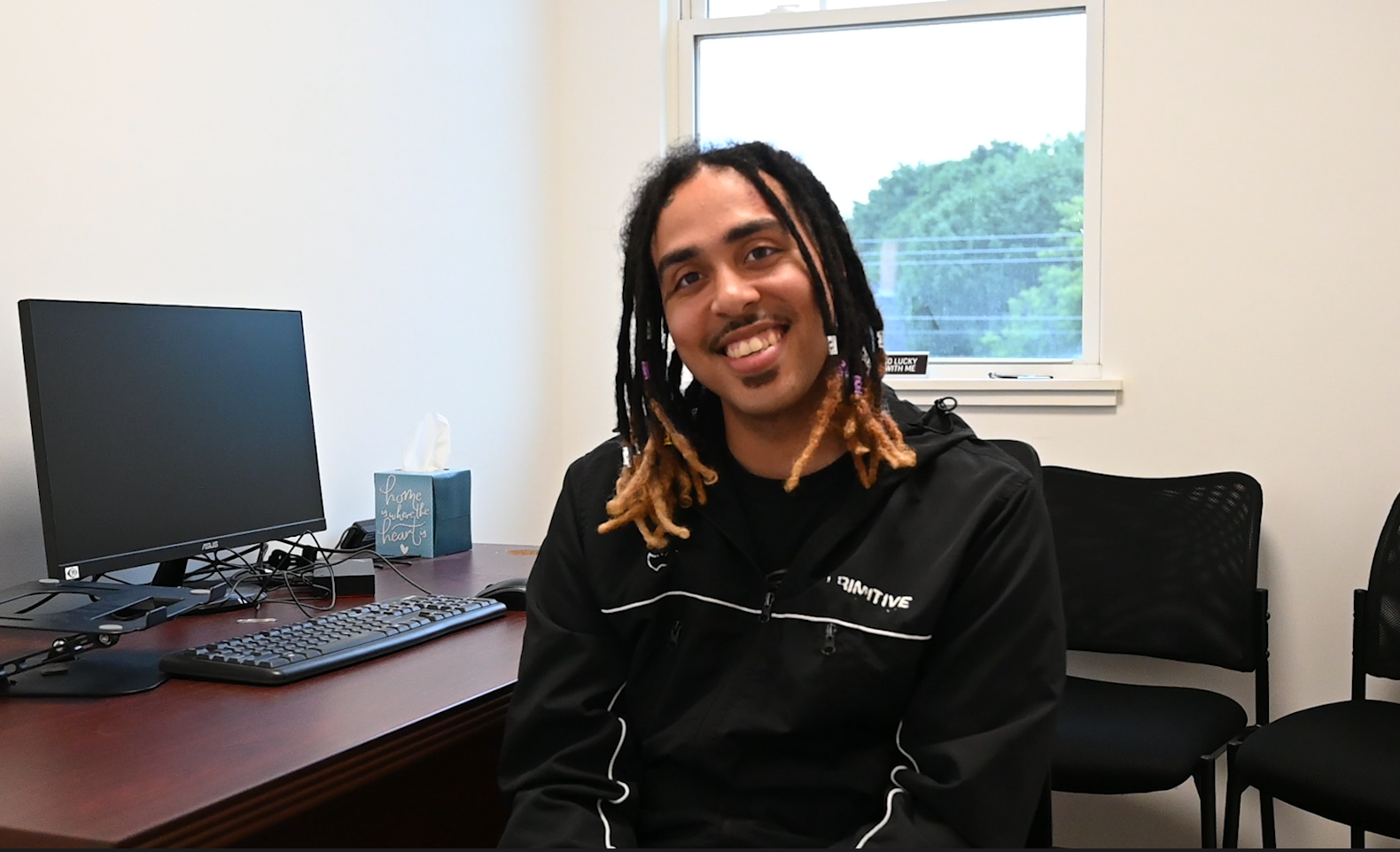Success Stories
Bipolar left Keeley feeling unemployable, now she’s PhD-bound and helping manage a store
July 1, 2021

In 2014, Keeley had a psychotic break that left her hospitalized for two years. In that time she gained tools to help her live with bipolar disorder. After two years in a psychiatric hospital, Keeley was ready to work … but no one would hire her.
“It was nearly impossible to find a job,” she said. “No one wants to hire anyone who hasn’t been employed in eight months, especially when you can’t explain it. You just can’t get a job. Adam in the Waterville store took a chance on me.”
Working with bipolar disorder
Keeley started as a Sales Associate in the Waterville, Maine Goodwill store – helping sort donations, hang clothing, work the cash register and more. While it was nice to have a routine, a sense of purpose and an income, the stress of the job took a toll.
“It was a little bit rough. I had a lot of panic attacks on the job — I would have to leave early sometimes and I was only part-time,” she said. “I was also trying to finish my bachelor’s degree at the same time. It was a lot.”
After she finished her degree at UMaine Augusta, Keeley was promoted to shift supervisor. Her bosses, Adam and Pam, gave her time off and support whenever needed, Keeley said. She then began filling in as a supervisor in Augusta, and when an Assistant Store Manager job opened in that store, she applied and got the promotion.
Being open about mental illness in the workplace
Keeley is open about her mental illness at work – all her coworkers know.
“It’s just part of who I am. People have physical illnesses, I have mental illnesses. It’s just who I am,” Keeley said. “People have a limp, I have brain limps — it’s no different to me. It’s important to talk about, it’s important that people know they’re not alone in dealing with stuff like that. It is possible to live a life that’s fulfilling and meaningful when you do have mental illnesses. It doesn’t have to limit you.”
In fact, being open about her disability bonded her to some of her coworkers, who then opened up to Keeley about their own bipolar. And while most days are good days, there are always going to be ups and downs.
“Biploar is a cyclical disorder – I get depressed, I get manic, it’s going to happen, it’s just not as severe now. In fact, I had a panic attack at work yesterday. I sat and cried on the floor for 20 minutes. It still happens, but it happens rarely. I get overwhelmed still and now I get through it. I’m a stronger person now. I’ve grown a lot as a person – therapy and the right medication helps.”
When Keeley needed time to cry, her coworkers offered her support.
“They were fantastic. They stepped in and were kind to me. They got me tissues and gave me a hug and told me it would all be okay. Everyone kind of understood that I was overwhelmed. Yesterday was a DAY. Like a DAY but today is a different day,” she said.
Goodwill hires people with disabilities, and Keeley is a part of that important work
As an Assistant Store Manager, Keeley hires people to work in the Augusta store.
“I tend to hire compassionately,” she said. “Some of the people I’ve hired have criminal records. I’ve hired people who would have disabilities. Everyone deserves a second chance in life — it doesn’t matter what you’ve done in your past, it matters what you do now. If you want to better your life, I want to help you do that. It’s Goodwill, we’re going to give people a second chance.”
Her hiring philosophy was formed from her experience of being unemployed because of her own disability.
“I hire people with all kinds of disabilities because everyone deserves a chance to make a living, have a job, and feel like they’re contributing to society. That was my biggest takeaway from not being able to work for eight months: I felt useless. I needed something to do. Working at Goodwill – even part-time gave me a sense of purpose. It’s a retail job, but because Goodwill does more it’s not like working for [a big-box, for-profit store]. It’s not a big corporation that funnels money into someone’s pockets. The money helps other people, that’s what I love about Goodwill: When I come to work I work for a nonprofit that helps other people. That’s why I help other people get jobs too. I hire so many people and I help them connect to the Internal Life Navigator [a free social-worker-type position provided by Goodwill as a benefit to all employees]. I love our Life Navigators. It’s fantastic, I’ve sent a couple people to our Life Navigators because sometimes there’s nothing I can do – I can’t help with transportation or child care issues but the Life Navigators can.”
Goodwill is just the first step in Keeley’s career
Now Keeley is working toward her Master’s Degree in Public Health through the University of Vermont. The ultimate dream is to go for her PhD in a few years in epidemiology and eventually work for the Maine Center of Disease Control.
“[My education] has nothing to do with Goodwill. I’ll be leaving Goodwill in three years, but coming from where I came from … being able to have a psychological break and not being able to find a job to essentially running a store, it’s crazy. I can’t believe what I’ve done and that I’m going for my masters.”
If you would like to work for Goodwill, we’re hiring. Find jobs here or call HR at 207-774-6323: GoodwillJobs.org. One unique benefit of working for Goodwill is access to free, confidential support from Employee Life Navigators, like Keeley said. Life Navigators have helped employees through a variety of issues, including but not limited to: Helping access low-cost or free food, heating assistance, vehicle repair assistance, counseling/listening, support and guidance on having difficult conversations at home or in the workplace, exploring new careers, and more. No matter what the challenge, Employee Life Navigators are a resource.



